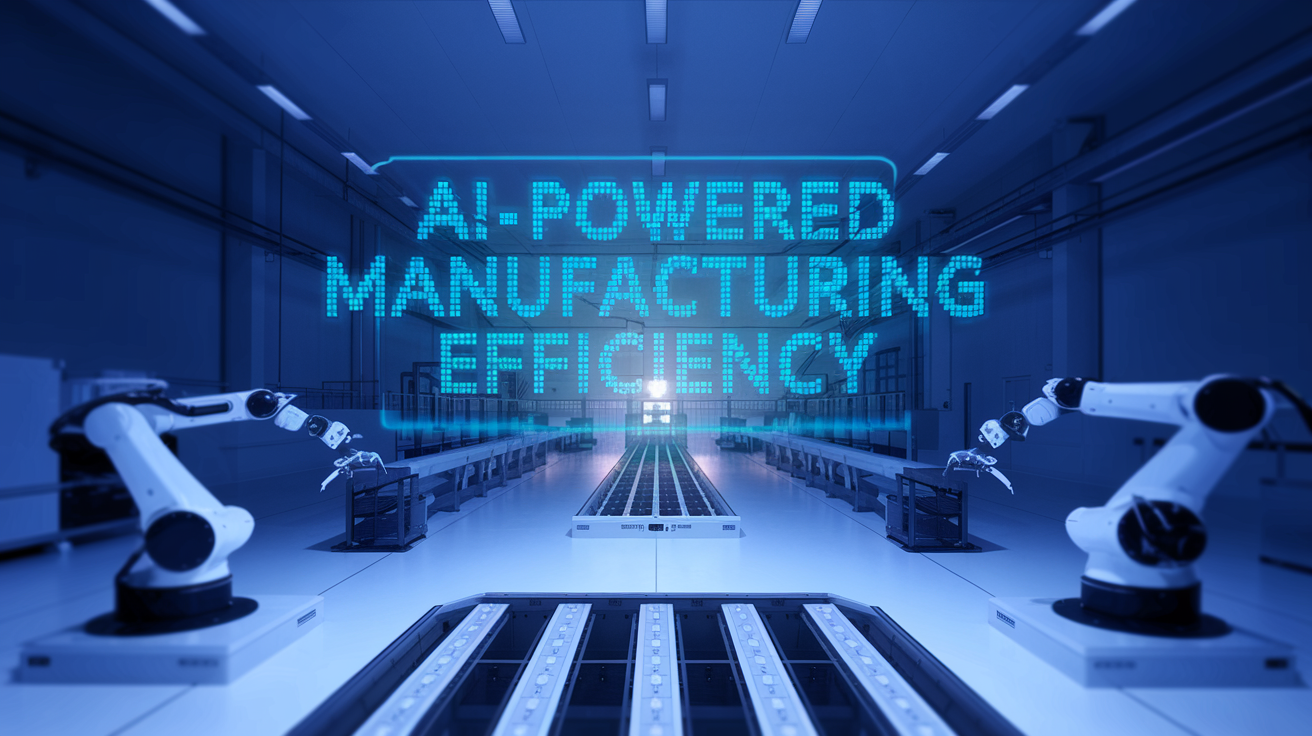
1. AI-Driven Sustainability: Green Manufacturing for the Future
-
Energy Efficiency: AI-powered smart grids dynamically adjust power consumption based on real-time demand, reducing energy waste by up to 20%, according to a McKinsey report. Siemens, for example, leverages AI in its production facilities to predict and optimize power usage, cutting costs and emissions.
-
Waste Reduction: AI-driven predictive maintenance helps manufacturers reduce waste by 30-40% by identifying defects early. Companies like General Motors (GM) are already using AI-powered computer vision to detect material inefficiencies and optimize usage.
-
Sustainable Supply Chains: AI-powered logistics streamline inventory management and optimize transport routes, reducing carbon footprints. AI-backed material sourcing also identifies eco-friendly alternatives, helping companies meet regulatory standards while improving brand reputation and customer trust
2. Optimizing Supply Chains with AI: From Forecasting to Fulfillment
-
Demand Forecasting: AI analyzes historical data, market trends, and external factors (weather, inflation, etc.) to predict demand with 85% accuracy—a vast improvement over traditional models. Amazon uses AI-driven demand sensing to prevent stock shortages and adjust pricing dynamically.
-
Inventory Management: Real-time AI tracking prevents overstocking and stockouts by automatically adjusting order quantities based on live sales trends. Walmart leverages AI to reduce stock issues by 50%, improving operational efficiency.
-
Automated Logistics: AI-powered route optimization algorithms reduce transportation costs and ensure on-time deliveries. UPS, for instance, has implemented AI in its ORION system, saving 10 million gallons of fuel annually and cutting emissions significantly.
3. The Reshoring Trend: AI’s Role in Local Manufacturing
-
Smart Automation & Robotics: AI-driven robotics are transforming production lines, reducing reliance on offshore labor without sacrificing productivity. Tesla’s AI-powered Gigafactories use advanced automation to manufacture batteries and EV components locally, significantly lowering labor costs.
-
Cost Optimization: AI helps companies analyze production costs, tax incentives, and supply chain risks to make reshoring viable. According to a PwC study, AI-driven cost analysis has helped US manufacturers cut operational costs by 20% after relocating production domestically.
-
AI-Powered Quality Control: Traditional manual inspections are slow and prone to errors. AI-enhanced computer vision systems detect defects with 99% accuracy, improving quality and reducing recalls. BMW employs AI in its factories to conduct
instant quality checks, boosting consistency and lowering production waste. (Averroes)
4. AI and Workforce Transformation: Augmenting Human Capabilities
-
Upskilling & AI-Driven Training: AI-powered learning platforms personalize training for workers, helping them adapt to new technologies. Boeing has implemented AI-driven VR training for technicians, improving skill development 40% faster than traditional methods.
-
Collaborative Robotics: Unlike traditional automation, Collaborative Robots work alongside humans, enhancing efficiency without job displacement. Ford’s AI-driven assembly lines integrate these bots that assist workers in repetitive tasks, reducing fatigue while boosting productivity by 30%. (AllAboutAI)
-
AI-Powered Safety Systems: AI-driven sensors and predictive analytics can detect hazardous conditions before they cause accidents. Toyota uses AI-enhanced workplace safety measures, reducing injury rates by 25%

Posted by PDI Marketing Team
Pacific Data Integrators Offers Unique Data Solutions Leveraging AI/ML, Large Language Models (Open AI: GPT-4, Meta: Llama2, Databricks: Dolly), Cloud, Data Management and Analytics Technologies, Helping Leading Organizations Solve Their Critical Business Challenges, Drive Data Driven Insights, Improve Decision-Making, and Achieve Business Objectives.




